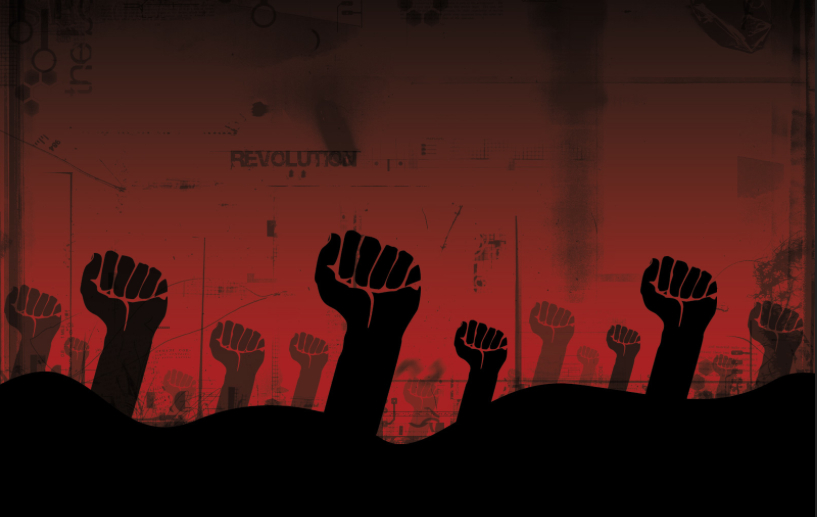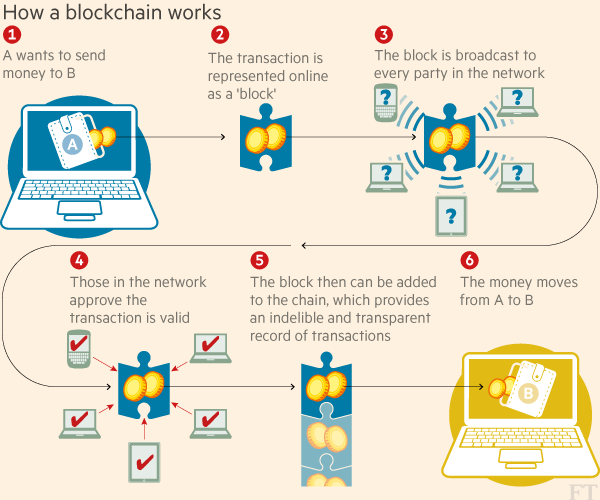|
The music industry is broken. There’s really no other way to put it. By most measurable accounts, the music industry is much worse off than it was just a decade ago. CD sales are down 84% from where they were ten years ago and although streaming numbers are up, digital sales are also down, and streaming revenue doesn’t seem to be substantial enough yet to support most artists. Of course, the music industry might be a lot smaller than it was in the recent past, but it’s still a huge industry with a lot of money being generated. In fact, music sales in the US alone, when streaming is taken into account, is still over 7 billion dollars a year. Globally, the music business is a 25 billion dollar a year business. Although revenue from CD sales is down dramatically, there is still an enormous amount of music being consumed through new distribution channels. But no matter how you look at the numbers, it’s hard to deny that it’s much more difficult than it was in the not too distant past for most musicians. Payments and revenue for artists are down, pretty much across the board. Record sales are down and are just a fraction of what they used to be. Licensing sync fees and performance royalties are also down in most cases. We all know how hard it is to generate substantial revenue from streaming services. Most of the time, in order for musicians to even have a shot at getting their music heard, they have to make deals with a series of intermediaries, such as record labels, publishers, music libraries and music distributors. These deals are often complex, multifaceted, involving multiple parties, in deals that tend to be inefficient and painfully slow. It often takes months or years to get fully paid for transactions, if they happen at all. Take licensing for example, if I license my music in TV today, I won’t receive performance royalties from anywhere between six and nine months from today, assuming all the paperwork is properly filed. Of course between now and then, I’ll still have bills to pay and expenses that I must meet. Collecting money owed from mechanical royalties and music that is aired on the radio is an equally slow and inefficient process. This system of getting our music heard and distributed is and “old school” system that’s more than 100 years old. It’s been around since the rise of radio broadcasting in the 1920s. It’s an archaic and increasingly obsolete system that was created long before the advent of the internet which has completely transformed the music industry and how consumers find and consume music. Listeners Have Never Made It Better – It’s A Utopia For Music Fans! Ironically, while it’s probably never been a worse time for music creators, I think it’s fair to say, that it’s never been a better time for music lovers and people who listen to music. While the music creators themselves are struggling more than ever, at the same time, there’s easier access to a wider supply of music than there ever has been for music fans. For the most part, finding most music is a simple mouse click away. There are a myriad of free or low cost options for consuming music. From Youtube to Vevo, Spotify Or Tidal, Pandora and so on, there’s no shortage of ways to listen to and discover new music. It’s a utopia for music lovers. The problem is, that while the music industry has been changing and evolving, the money being generated by the new forms of media that distribute music, isn’t substantial enough to make music a viable career path for most artists. The money that is being generated is also painfully slow to reach the actual music creators. This makes it even harder for musicians who are trying to create sustainable careers in the music business, which is challenging enough even without these obstacles. How To Make It Better For Music Creators – Enter The Blockchain This is where the blockhain comes in… I first heard about blockchain technology in a conversation I had with Scott Kirby from Music Revolt.org last year on my podcast. During the podcast, Scott and I talked about some of the many problems and challenges facing the music industry currently and different ideas we had about how the industry could improve. One of the possibilities Scott brought up in our conversation was blockchain technology. To be honest, when Scott told me about the Blockchain originally, I was a bit perplexed. I sort of got the concept. I was vaguely familiar with bitcoin, the cryptocurrency that utilizes blockchain technology to create a digital currency that can be used to buy and sell things online. But even though the idea intrigued me, I didn’t fully grasp the idea and how it could be applied to the music industry. As I kept hearing more and more about the concept of blockchain technology and its potential application in the music industry, I decided to dive in deep to the subject and really try and wrap my head around it. I started watching youtube videos about it, I started reading industry articles about the technology and I started talking to people who are working in the business that are proponents of the technology. One of the things that really excites me about the music industry right now is the fact that it’s so broken. That might sound like a strange thing to say, but think about it, the music industry is in such a state of profound disrepair that the only direction we can really go is up. All industries evolve and change, and my intuition and sense is that the music industry is ripe for a revolution of sorts. The technology exists right now to solve many of the issues that are plaguing the music industry. Before I try and explain how blockchain technology works, let’s look at some of the areas proponents of the technology say it has the ability to address. According To Industry Experts, Blockchain technology has the capability to:
Vinay Gupta, release coordinator and general strategist for Ethereum, a leader in blockchain technology, had this to say about the blockchain….. “the blockchain is inevitable.. it isn’t a simple convenience, it’s necessary to create a level playing field to ensure the system is fair to everybody, wherever they are in the world… the block is here to stay, I think.” What is the blockchain? Ok, so what exactly is the “blockchain”? I’m fairly computer and tech savvy, but I have to admit that explaining what the blockchain is and how it works is a little complex. Bas Grasmeyer, from Hypebot, explains it better than I could… ‘The blockchain is the distributed database model underlying cryptocurrencies like Bitcoin and Ethereum. It takes peer-to-peer technology to data records. Instead of having all data on one computer, it lives on the computers of everyone who participates in the database. You can only write to it: this means that if you want to change data into the database, you declare what the new info is, but the old version remains in the system, so that the change is transparent. A bit like with ledgers.” Huh? It’s a little confusing and technical. Here’s a visual that makes it a little easier to understand: I admit, fully understanding the technology is a little difficult. But don’t worry too much about how it works. Just understand that the technology exists right now and it can potentially do two main things for the industry. It’s sort of like understanding how the internet works. Do you really understand the internet and the computer coding behind it? Me neither, but I know I enjoy using it.
The blockchain technology will do two main things: The first is that it will record a permanent record of who did what on each song,” sort of like what IMDB does for films, but using blockchain technology. This will allow every contributor to a track, co-writers, producers, vocalists and so on to get credited for their part and get paid instantly for agreed upon percentages based on contribution. This will happen via what our known as “smart contracts”. Which will be the blockchain’s second main contribution to the music industry. Gupta explains that a smart contract is “basically a tiny little program that has fixed instructions about how to move money… you store it permanently on a blockchain, and when payments come in, it says ‘we’ve received some money, this much goes to the taxman, this much goes to the contributor, this much goes to our studio…” Imagine licensing one of your songs and everyone involved with the song’s creation and publishing getting paid for the sync fee instantly. This is what smart contracts will be able to do. Money moves instantly in the digital age, so why shouldn’t it work this way in the music industry? Why do things have to move through such slow and inefficient channels? They really don’t have to and the blockchain could potentially resolve this issue. There is a lot left to work out about when and how the blockchain technology will be implemented in the music industry. There are industry standards to sort out and be agreed upon. I’m sure there will be complex industry negotiations and meetings with the major players in the industry that are interested in retaining control of as many of their assets as possible. I’m sure many will resist the technology, while at the same time, others will embrace it and celebrate it. Like all great revolutions, there will be people resisting change. But like Victor Hugo, the French philosopher said, “there is nothing more powerful than an idea whose time has come”. I believe this idea and technology will simply be too powerful to stop. There are several new companies emerging as we speak that are attempting to address the problems the music industry is facing and pave a new way forward utilizing blockchain technology. Here are a few companies to keep your eyes on that will be utilizing blockchain technology: Ujo Music - http://ujomusic.com/ Peer Tracks - http://peertracks.com/ Bittunes - http://www.bittunes.org/ I will be keeping my eye on this issue as much as possible and will be bringing guests in this space on my podcast in the near future to dissect this technology and its implications for the music industry even more. I think it’s important as musicians and artists be acutely aware of where the industry is headed. Our careers and livelihood depend on it. For now, know this. Change is coming.
7 Comments
Debbie
10/9/2016 01:54:20 pm
Great break down Aaron! Sounds very promising :)
Reply
Aaron Davison
10/9/2016 03:34:40 pm
Yes, blockchain technology could make this much easier to accomplish. It's an emerging technology and most companies utilizing it are still in beta. Check out the links in the article at the bottom to get a better idea of what companies are planning to do with it.
Reply
Courtney Hamilton
10/9/2016 06:23:38 pm
I've been watching this technology for a while, especially as it relates to our industry, change is truly coming and I can't wait, thanks again for a great article Aaron! -CDH
Reply
10/10/2016 01:16:12 pm
Very interested in this. About two years ago, I read an article from Imogen Heap about this.
Reply
Aaron Davison
10/10/2016 02:46:23 pm
Yeah, she has been a pioneer in this space. Very smart woman and amazing songwriter!
Reply
Nias
10/22/2016 09:41:57 am
As an independent writer, artist, producer, and master owner; this is extremely interesting! I look forward to learning more and seeing it applied in the industry.
Reply
Leave a Reply. |
|
© 2024 By Aaron Davison.net


